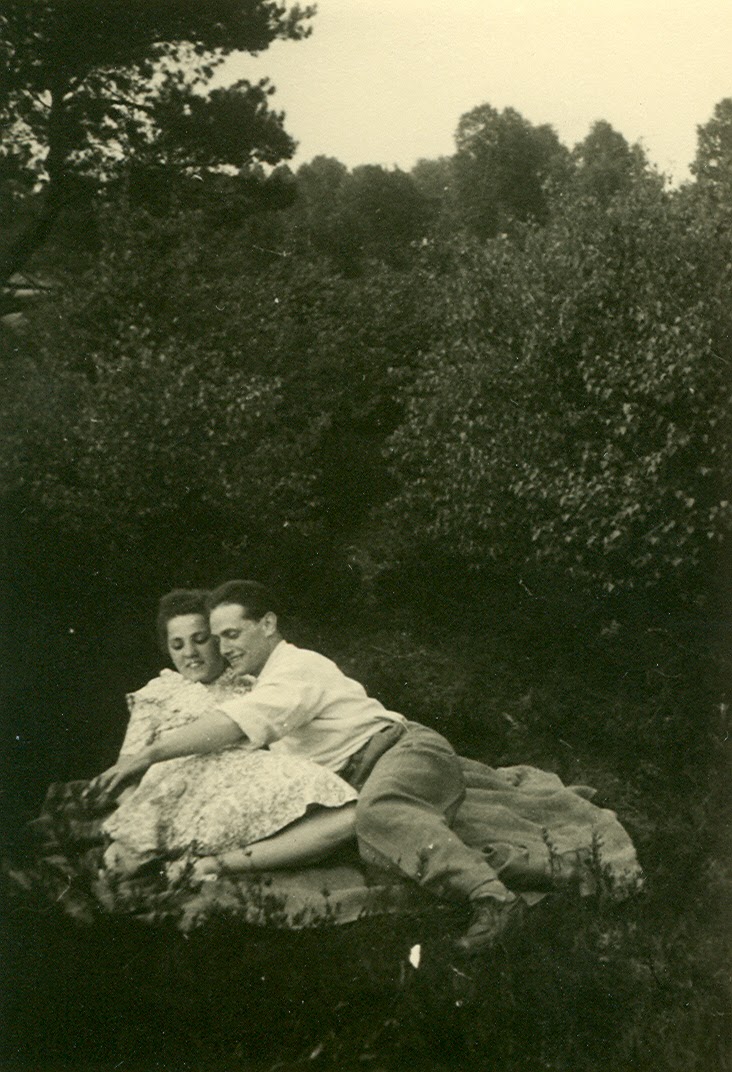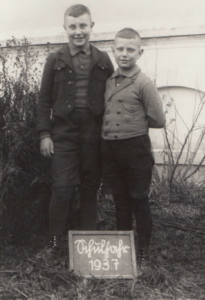 My Uncle Walter (age 13) and Father Otto (age 10) in their school year 1937 (written in neat Sütterlinschrift on the chalk board).
My Uncle Walter (age 13) and Father Otto (age 10) in their school year 1937 (written in neat Sütterlinschrift on the chalk board).
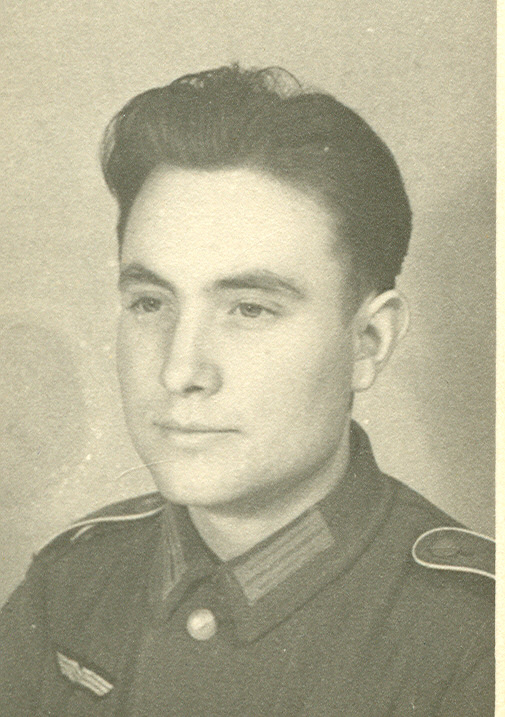
It only occurred to me quite recently that I must have been named after my Onkel Walter who fell 1944 near Pomorzany in the Ukraine, here a photo of his field grave sent to his family.
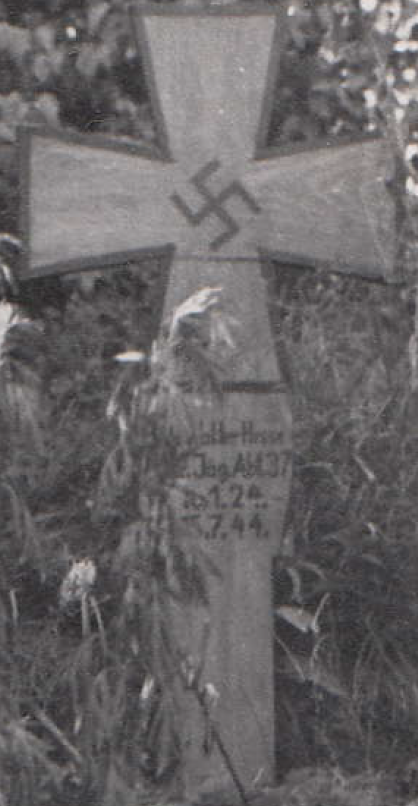
My Grandparents received a photo of his grave and this letter:
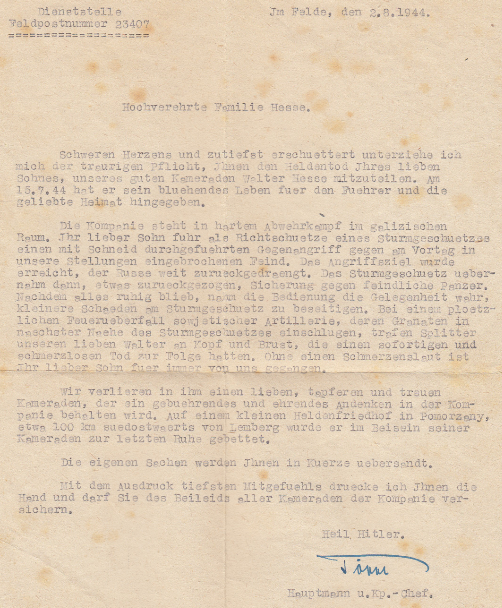
Field post number 23407
In the Field, 2.8.1944
Highly revered Hesse family.
With a heavy heart and deeply shaken, I submit to the sad duty to inform you of the heroic death of your dear son, our good comrade Walter Hesse. On 15.7.44 he gave his blossoming life to the Fuehrer and beloved homeland.The company is in heavy defensive in the Galician area.
Your dear son, as a gunner of an armored vehicle, made a dashing counter-attack against an enemy who had broken into our positions the day before. The aim of the attack was achieved, the Russian was pushed back far. The armored vehicle then started to guard against enemy tanks.
After everything was quiet, the crew took the opportunity to work on minor damage to the vehicle. In a sudden fire raid by Soviet artillery, shells smashed in at close proximity, splinters hit our dear Walter on the head and chest, which resulted in an immediate and painless death. Without a sound of pain, your dear son has left us forever.
We lose in him a dear, brave and faithful comrade, who will have a lasting and honourable memory in our company. On a small hero cemetery in Pomorzany, 100km south-east of Lemberg (Lviv), he was laid to rest in the presence of his comrades.
His belongings will be sent to you, shortly.
With the expression of deepest sympathy, I extend my hand and assure you of the condolences of all comrades of the company.
Heil Hitler
Töppe
Captain and Company Commander
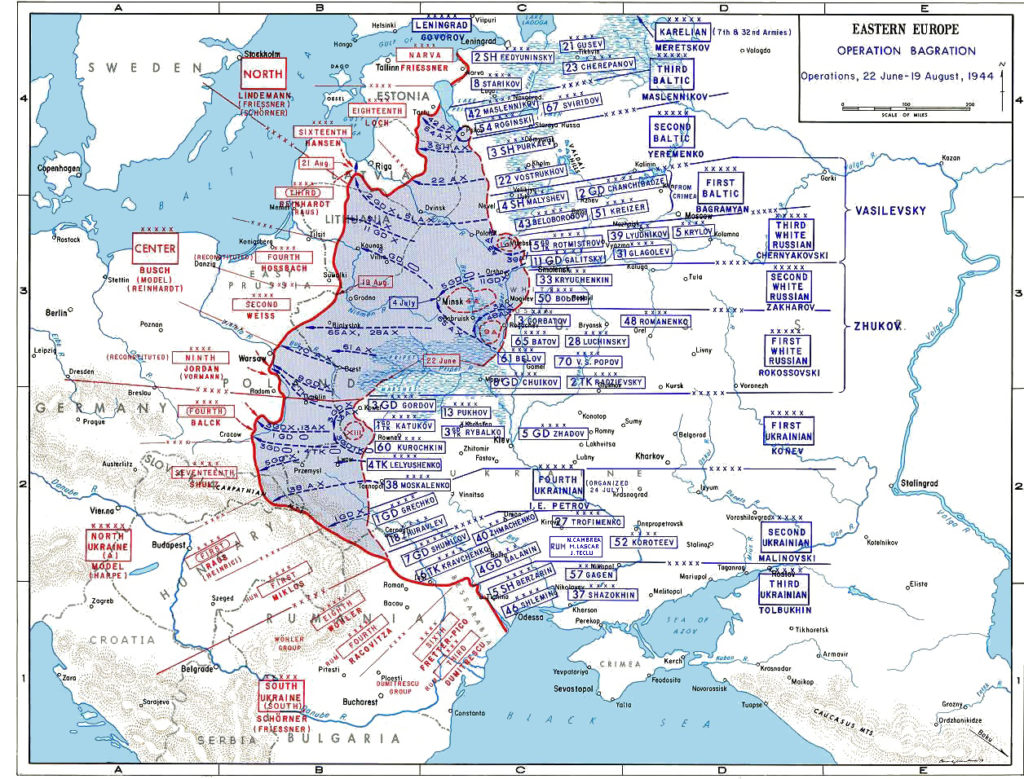
Operation Bagration (/Операция Багратио́н) was the code name for the Soviet 1944 Belorussian Strategic Offensive Operation,
fought between 23 June and 19 August 1944 when the Soviet Union inflicted the biggest defeat in German military history by destroying 28 out of 34 divisions of Army Group Centre and completely shattered the German front line.
German casualties ~450,000 Russian casualties ~780,000.
The soldier above all others prays for peace,
for it is the soldier who must suffer and bear the deepest wounds and scars of war.
Douglas MacArthur
My mum’s side of the family (Bökamp or Boekamp ) was traced back ten generations to ~1600 by my Uncle Willi Bökamp in 1997, here only shown my Grandfather Heinrich’s siblings generation – I can remember all of them:

I know nothing about my dad’s side other than his parents Louise and Albert (I never met) who was a German Railways Inspector in Steinhelle (close to Brilon) where my father Otto and his brother Walter grew up in Wulmeringhausen before they moved into “the Mastbruch” close to Paderborn.
My mum Anne and dad Otto were childhood sweethearts going to the same school together in Mastbruch, Schloss Neuhaus bei Paderborn in Ostwestfalen, Germany.
During the war years they did what the vast majority of young people did, my mum joined the League of German Girls and my dad the Hitler Youth.
While my mum did her “Landjahr” (The Country Service Year ) my father started a three year apprenticeship with the Deutsche Reichsbahn as toolmaker. At the end of his apprenticeship he had four weeks time to craft his “Gesellenstueck” (journeyman’s piece ) using a lump of steel and any tools available in the workshop. He made a beautiful pair of pliers I handed down to my oldest son not that long ago.
In 1944 his entire “Lehrlingsjahr” (apprentice intake year of ~150 boys) was called up to the Volkssturm “People’s Storm” (Hitler’s last desperate attempt to turn the war) at first repairing bombed infrastructure in the Ruhrgebiet (the industrial heartland of Germany).
From there his “Year” was given basic military training and transported as a unit to Danzig from where they were shipped to the Courland Pocket already cut off by the Russian Army. Several weeks of trench warfare ensued where at the end both sides ran out of ammunition and tried to kill each other by rifle butt, knife, rock and bare hands.
My dad told me a war story once where he had ran through a trench in the middle of the night when he came across a fallen German Officer who had a loaded Revolver on him. He took it and kept running when a Russian soldier jumped on top of him, pinned him down and tried to bash his head in with his rifle butt. My dad took the Revolver from his belt, aimed it blind under his arm towards the combatant’s head and pulled the trigger.
My dad was 17 at the time and his combatant would not have been much older.
What I will never forget – when he told me the story – there was neither glee or regret in his voice or face – he was completely “matter of fact” describing something that was “normal” and “had to be done to survive”.
The war in the Courland Pocket ended two days after the offical capitulation on May 8, 1945 – at this stage ~150,000 Germans and ~150,000 Russians had fallen without change in front line location – adding to the madness of the WW2 detah toll of ~26m in Russia and ~5m in Germany.
My father and the few left from his “Year” went straight to Siberia PoW labour camps returning five years later, where their number was further reduced due to malnutrition – my dad said ~20% of his original intake made it home.
I have never heard my father say a bad word about Russians in all his life although he lost his only brother, many comrades and friends during the War. To the contrary, he always marveled at the superior skills of their sniper women.
When my father returned his mother spoiled him for four weeks to get his strength back. Then together with his father Albert they organised a donkey, a kart and two shovels and dug out the cellar foundations for four weeks of the home I was born into only 15 years later. The building took 3 years to finish as material and skilled labour was scarce.
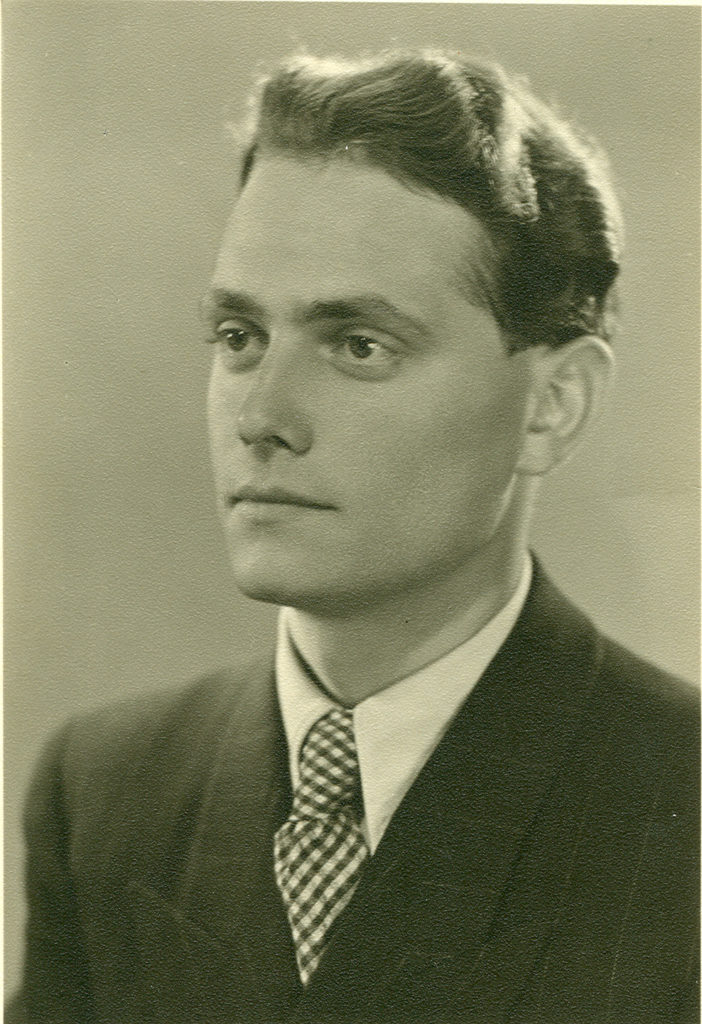
My father – and I think all the men from his year who made it back – all got jobs at the (now) Deutsche Bundesbahn Ausbesserungswerk Paderborn-Nord.
